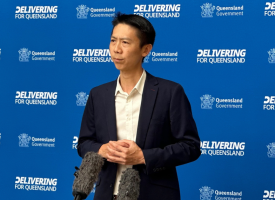New AMA position statement on LGBTQIA+ community
The new policy document calls for major changes to legislation and treatment of people who are LGBTQIA+, and asks the Australian Medical Council to include LGBTQIA+ health knowledge as a graduate outcome for medical students.

The new policy document calls for major changes to legislation and treatment of people who are LGBTQIA+, and asks the Australian Medical Council to include LGBTQIA+ health knowledge as a graduate outcome for medical students.
The AMA has released a position statement calling for an end to discrimination against people who are LGBTQIA+ in the healthcare system, including patients and health care workers.
AMA President Dr Omar Khorshid said the position statement included a call for all state and territory governments to ban coercive ‘conversion’ practices.
“Conversion practices are a blatant example of the discrimination faced by LGBTQIA+ people in Australia and have no place in our society. Currently only Victoria, the ACT and Queensland have legislation in place banning conversion,” Dr Khorshid said.
Dr Khorshid said being LGBTQIA+ was normal, healthy, and representative of the diversity in human sexuality, gender identity, and sex characteristics.
He said the position statement would increase awareness of the health disparities experienced by people and health professionals who identify as LGBTQIA+, and promote cultural safety for these communities in health settings.
“The medical profession should affirm, support and provide care for people who are LGBTQIA+,” he said.
Dr Khorshid said as well as calling for a ban on conversion therapy the position statement included recommendations to the federal government to:
- support mainstream health services to increase cultural safety for people who are LGBTQIA+;
- fund high-quality research on the health outcomes and experiences of people who are LGBTQIA+;
- enhance access to beneficial gender-affirming treatment; and
- add sensitive, evidence-based questions on gender, sexual orientation, and intersex variations to the Australian Census.
Dr Khorshid said the AMA also called on the Australian Medical Council to include LGBTQIA+ health knowledge as a graduate outcome for medical students.
He said in relation to people who were intersex, the position statement asked all medical practitioners to affirm Yogyakarta Principle 32 that ‘no-one should be subjected to invasive or irreversible medical procedures that modify sex characteristics without their free, prior and informed consent, unless necessary to avoid serious, urgent and irreparable harm to the concerned person’.



